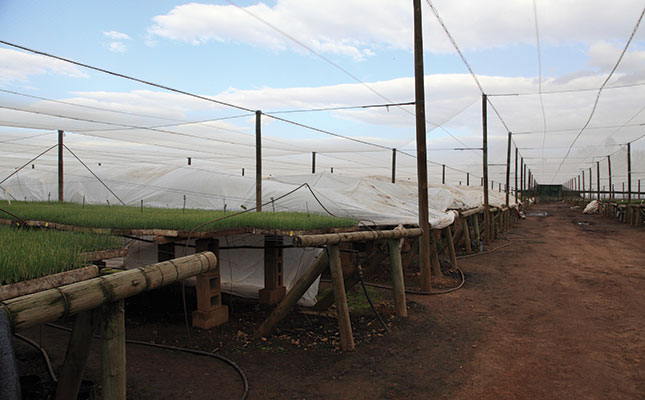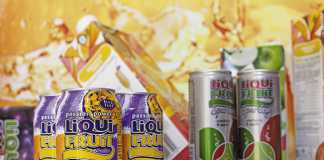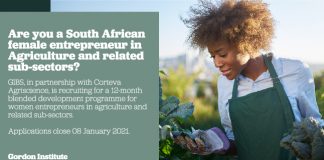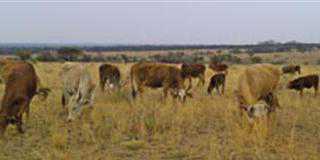
Photo: Glenneis Kriel
Starting and growing a successful farming business requires determination, capital, a market, and much more. And among these elements, one in particular stands out: partnerships.
This is one of the key lessons that Yolandi Leen learnt when she and her husband, Kobus, launched their nursery, Kobus se Kwekery, in Oudtshoorn in the Klein Karoo in 2014.
Arguably their biggest break came when Patrick Murray, the owner of Langkloof Seedlings, decided to help them realise their dream of establishing their own nursery.
“Kobus and I come from a family of farmworkers near Herold [in the George district], and we gained experience while working at Patrick’s nursery for more than 24 years. In 2014, Patrick went into a 50:50 business partnership with us and helped us secure a lease for land belonging to the Oudtshoorn Municipality. We also obtained funding from the Western Cape Department of Agriculture to get the nursery going.”
In addition, the department provided the couple with nursery infrastructure, along with seed trays, wooden supports for the trays, irrigation, a packhouse, and implements such as a planter.
To ensure the nursery got off to a good start, Murray was initially actively involved in the running of the business. Gradually, however, he decreased his involvement and shareholding to allow the Leens to take full ownership in 2019.
“Patrick was a great asset, but our agreement was that he’d withdraw after five years. Despite his mentoring to prepare us for the transition, it was still a huge shock when he left,” says Leen.
“Fortunately, Klein Karoo Seed Production helped to fill that gap, not only by helping with the books, but by giving production advice. Philip Swart, an extension officer at the agriculture department, also goes out of his way to guide us when needed.”
Secure market
Klein Karoo Seed Production is their biggest client, and having this market for their seedlings has been another major advantage.
“We produce spring onion seedlings on consignment for farmers who supply Klein Karoo Seed Production with seed,” says Leen.
Klein Karoo Seed Production provides the nursery with seed and inputs, which helps to keep overheads low, as well as a production recipe and advice to ensure that seedlings comply with their high production standards.
Kobus se Kwekery also grows seedlings for vegetables, salad plants, herbs, melons, watermelons and tobacco on consignment for farmers in the region, and occasionally sells plants to customers with food gardens.
Leen explains that farmers can obviously produce seed from scratch, but many prefer to plant seedlings supplied by a nursery, as these are stronger and more uniform than plants grown from seed in the open. In addition, seedlings produced in Oudtshoorn’s hot climate are also able to better handle the shock of being transplanted than those grown under milder conditions.
Klein Karoo Seed Production has gone out of its way to ensure Kobus se Kwekery’s success, says Leen.
“They embraced us like family. We were really struggling to make ends meet when
tobacco farmers downscaled production during the COVID-19 pandemic because of the tobacco trade restrictions, and the drought made the situation worse. If it hadn’t been for the Klein Karoo Seed Production contract, we wouldn’t have made it.”
Job creation
Leen says one of the greatest fulfilments of having the business is their ability to create much-needed jobs in Oudtshoorn.
“I just want to get more land to expand production and secure more contracts, which will ultimately allow us to create even more jobs. Klein Karoo Seed Production will give us consignments to produce more vegetable seedlings if we have access to more land. It can be any land; we don’t need to own it.”
The nursery, which has capacity for 30 000 seed trays, employed 11 full-time and seven casual workers at its peak. The drought, however, has forced them to downscale to eight full-time workers, and casual workers are employed three days a week to help with cleaning and other tasks.
Seedling production itself is quite straightforward, according to Leen. They receive the seed and then plant it in trays using a planter that can plant 3 000 to 4 000 seeds a day, which would normally require the labour of 10 people.
“While we want to create jobs, we also need to be economically viable and competitive, which is why we use the planter,” says Leen.
Production
The seed is planted in an organic medium supplied by Earth2Earth Organics in Mpumalanga. However, Leen says they are considering switching to a medium produced by Grow Green Organics in George, which would be much cheaper for them as it is manufactured nearby. The growth medium is used just once to ensure that the seed and resultant seedlings stay disease- and pest-free.
It takes about three days for seed to germinate, while low winter temperatures lengthen this process to a week. In summer, the seedlings are ready to be sent to growers after about six weeks, whereas it takes seven to eight weeks in winter.
Fertiliser is supplied to the seedlings via a fertigation programme designed specifically for the nursery, with the seedlings requiring more water and fertiliser during hot days due to higher transpiration rates.
“We spray insecticide to help manage [insect pests], which are usually a problem in winter, and apply fungicides every Tuesday and Thursday to prevent fungal growth. In winter, the plants are covered with plastic sheets in the evenings to protect them against the cold,” says Leen.
She adds that the nursery suffered severe wind damage around August last year. “We’ve since repaired the nets by hand. We have to inspect the nets regularly for breakages and fix these as soon as possible to prevent further tears.”
She admits that Kobus talks to the plants and treats them like his children, which is another reason why she thinks the nursery is successful.
“You need to have a good eye for detail and to be in the nursery [often] to ensure that everything runs according to plan. When something goes wrong, it has to be addressed as soon as possible before it gets out of control.”
Leen says each day brings its own challenges, and it’s difficult to always be prepared.
“Instead of trying to solve these challenges on our own, we’ve learnt the value of asking others for advice to help us make the right decisions. As farmers, we should never be ashamed of asking for help, as our success has such a far-reaching impact on the lives of others.”
Email Yolandi Leen at [email protected].











